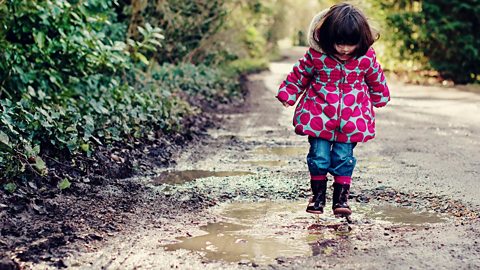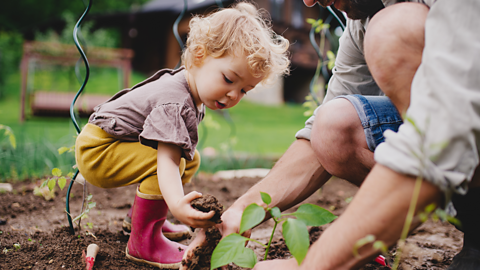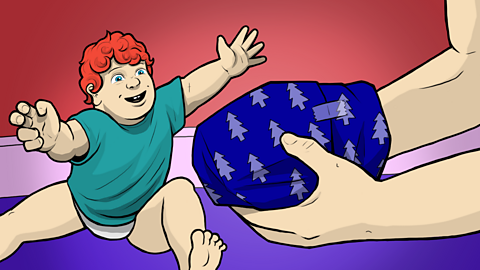Want to teach your children about the benefits of learning and understanding green living and the environment? We spoke to the experts to find out more.
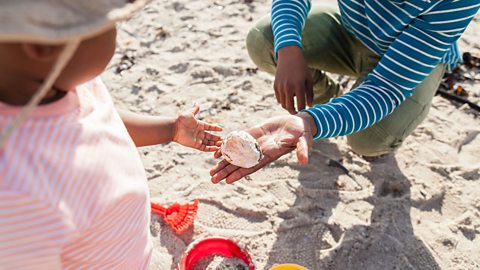
Teaching green ways early
We might think that teaching kids to look after the world when theyÔÇÖre still discovering it is too big a task. But actually, research suggests that starting early can help develop a sense of nurturing and care in your children.
Ben Ballin from the National Association for Environmental Education (NAEE) says there is growing evidence that attitudes towards the world and other people form at an early age. And it doesnÔÇÖt stop there ÔÇô learning about sustainability could have lifelong benefits:
ÔÇ£Positive contact with the natural world is good for the mental health and wellbeing of people of all ages,ÔÇØ says Ben. ÔÇ£By engaging playfully and meaningfully with the environment, young children are not only benefitting in terms of their social and personal development, but also developing a love of nature that will form a firm foundation for their future actions and understanding.ÔÇØ
Speech and language therapist Alys Mathers recommends building good habits early: ÔÇ£Using recycling to make everyday items such as toys and activities helps develop your childÔÇÖs pretend play, and gives them opportunities to stretch their imagination.ÔÇØ
Reusing and recycling also saves money and teaches children to appreciate our natural resources.
ÔÇ£Kids love getting out into nature, so itÔÇÖs good to show them we have to look after our parks, beaches, etc. if we want to enjoy them,ÔÇØ says Alys.
Here are some eco-friendly ideas to get you started.
Make your own toys
Children enjoy the making as much as the playing - involve them in the process, and theyÔÇÖll also value the toy more. Alys suggests letting them make choices about the toy ÔÇô for example, deciding which bottles make the best skittles. This is also an opportunity to help them learn some vocabulary through play:ÔÇ£Use words like big and small with younger children,ÔÇØ she says. ÔÇ£Older children might be ready to talk about ÔÇÿtallÔÇÖ or ÔÇÿheavyÔÇÖ skittles.ÔÇØ
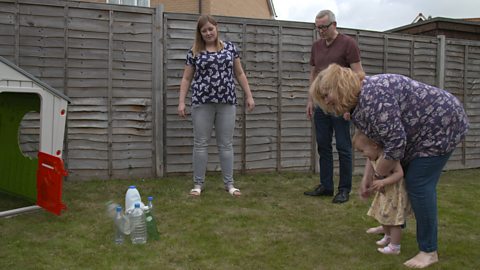
Sorting rubbish
Children as young as two can often follow simple ÔÇÿput-what-whereÔÇÖ instructions - for example, ÔÇÿput the crisp packet in the binÔÇÖ or ÔÇÿput the cereal box in the recyclingÔÇÖ. Alys says this helps with their understanding of basic categories ÔÇô as well as introducing them to the idea of sorting your rubbish and recycling!
ÔÇ£Talk about textures and feelings of different materials. Using the senses such as touch when learning new words, particularly abstract words like ÔÇÿhardÔÇÖ and ÔÇÿsoftÔÇÖ, helps children understand and remember the words.ÔÇØ
Junk modelling
Repurpose packaging and help develop imaginations by changing a box into a rocket, a racing car, a monster and so on. Follow your childÔÇÖs ideas, no matter how random. Once youÔÇÖve finished your creation, play with it together.
ÔÇ£The stories children make up when playing make believe are helping their language skills,ÔÇØ says Alys. ÔÇ£Keep the story going by asking ÔÇÿwhat happens next?ÔÇÖÔÇØ
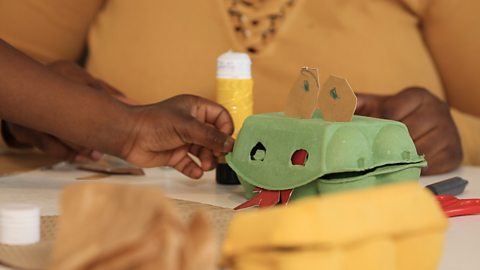
Grow your own
ThereÔÇÖs plenty to inspire a green finger or two in your little ones. Why not make a mini garden and re-use (unsalted) pasta or potato water to water your plants. Seeing a seed grow into a plant can demonstrate the magic of nature to your child.
ÔÇ£You could draw a picture of each stage of the plant growing, to help your child understand sequences of steps,ÔÇØ says Alys. ÔÇ£You could even act out together the seed growing ÔÇô curl up on the floor like a tiny seed, then gradually uncurl, kneel, stand, and last stretch your arms out like leaves.ÔÇØ
Putting steps in order and acting out sequences helps children understand links between events and can develop their story telling skills.
Turning your walks into scavenger hunts and nature games can help your little ones learn to understand and care for the world around them.
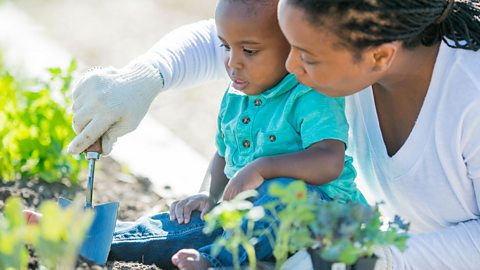
Charity shop haul
Sustainability starts in the home, and thereÔÇÖs nothing wrong with pre-loved toys ÔÇô especially when it comes to reducing plastic waste. Arranging a toy swap with other parents or scouting for charity finds is easier on the planet and your wallet.
Alys suggests talking about reasons when you decide whether to keep or give away a toy, such as: ÔÇ£I like this teddy because heÔÇÖs cuddlyÔÇØ or ÔÇ£IÔÇÖll give away this puzzle because itÔÇÖs too easyÔÇØ.

